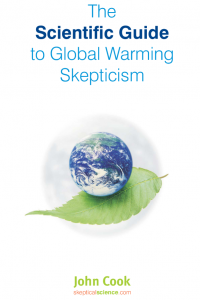The basic process of scientific research underlies just about everything we depend on in our world – medicine, agriculture, transportation, energy, technology and more. We all learned it in school – if not in college science courses, in high school or even earlier. Scientists make hypotheses, test them against facts and observations, submit the results for review by their peers, then see them published, after which other scientists try to replicate the results, build on them or challenge them. Others use those results to build or make things that we all depend on. The greater the weight of the evidence and the higher the consensus in the published work, the more widespread the use of those results. It’s a system that makes sense and has worked pretty well.
So how is it possible that anyone could choose one specific area of scientific research and claim that, in this case alone, the system has failed and the overwhelming consensus of the published work is wrong? If that sounds absurd, it probably is. Yet that’s precisely what is happening when it comes to the discussion of climate change. If you’ve wondered about this, but assumed that the science is too arcane or complex to make sense of without an advanced degree, we’ve found a great resource for you.
The Scientific Guide to Global Warming Skepticism, written by John Cook, an author and fellow at the University of Queensland, is a 16-page guide to the scientific evidence that human activity is causing climate change (“global warming”) and the ways that climate “skeptics” distort the scientific evidence and process in their arguments. The multiple, independent lines of scientific evidence are outlined in a straight-forward way that anyone with even a hazy memory of their school science can understand and critically examine. Each of the lines of evidence is backed up by references to the published research.
Those references are an important element of this or any published material we look at and potentially depend upon. While most of us remember footnotes and references only as a frustrating but required part of writing a research paper, their presence assures us that we (and others) can look further to confirm or better understand the claims being made.
You can also find this paper on Skeptical Science. Skeptical Science is a blog with multiple contributing authors focused on explaining climate change science, rebutting misinformation and clearly explaining the difference between scientific skepticism (an essential element of the scientific process) and misleading information.


